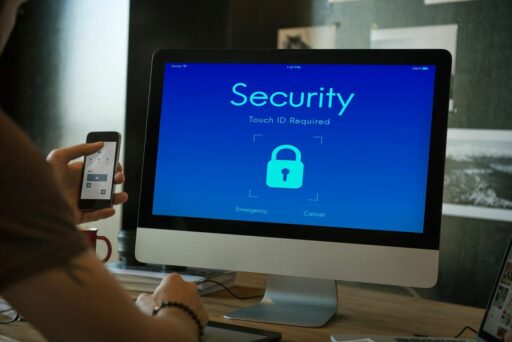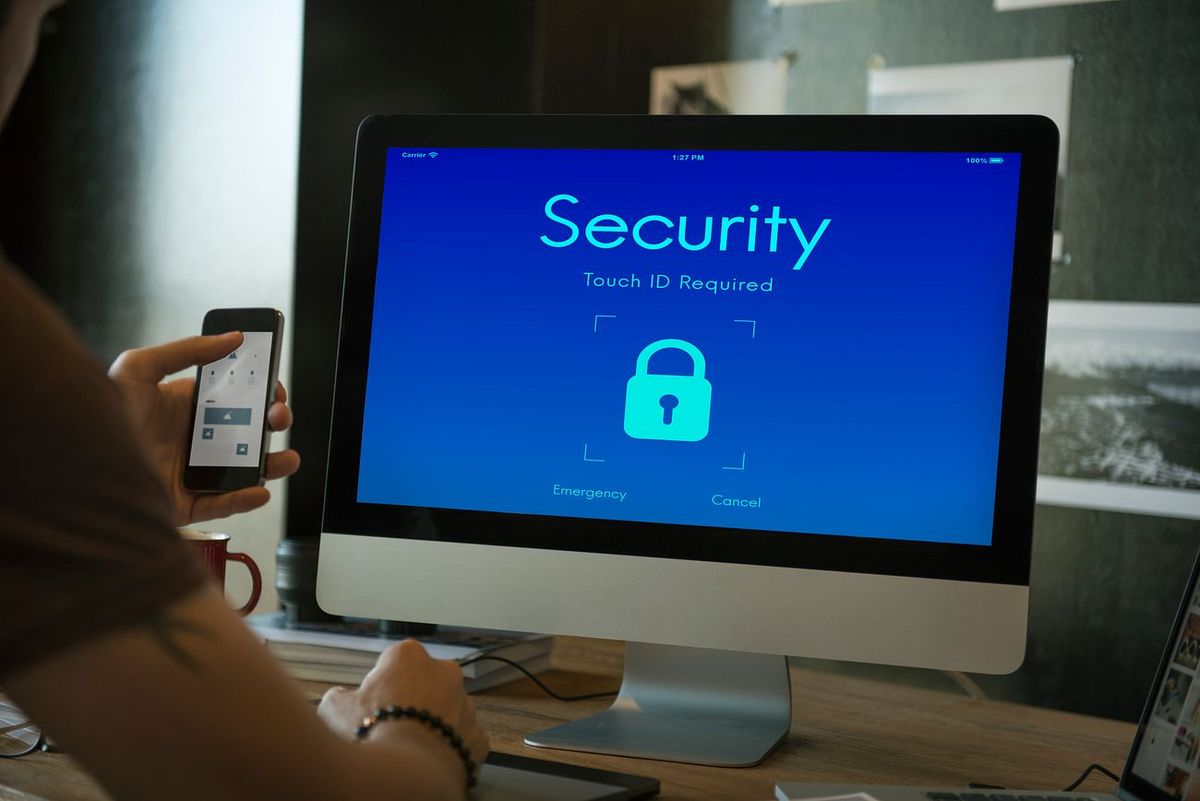In the evolving landscape of digital currencies, crypto wallets stand as the pivotal tools for the secure management and transaction of decentralized assets. They are not just a digital equivalent of a physical wallet, but a sophisticated system that manages the cryptographic keys necessary for blockchain operations. With the surge in cryptocurrency adoption, it is critical to understand the various aspects of crypto wallets, from their structure and security measures to the different types available, ensuring users can make informed decisions to protect their digital investments.
Key Takeaways
- Crypto wallets are essential for securely managing and transacting cryptocurrencies, functioning through the use of private and public keys.
- Security measures like encryption, multi-factor authentication, and backup protocols are vital for protecting crypto wallets from unauthorized access and threats.
- There are various types of crypto wallets, including software, hardware, and paper wallets, each offering distinct features and levels of security.
- Choosing the right crypto wallet depends on individual security needs, ease of use, provider trust, and the balance between accessibility and security.
- Adopting best practices such as regularly updating software, understanding exchange risks, and being vigilant against phishing is crucial for maintaining wallet security.
The Anatomy of a Crypto Wallet

Understanding Private and Public Keys
At the heart of every crypto wallet lie the private and public keys, the yin and yang of digital asset security. The private key is akin to a password, granting the owner access to their funds and the ability to initiate transactions. It’s imperative that this key remains confidential, as its exposure can lead to the loss of assets.
Public keys, on the other hand, serve as the wallet’s address on the blockchain. They are derived from the private key and can be safely shared with others to receive cryptocurrency. This dual-key system underpins the security of blockchain transactions, ensuring that only the rightful owner can spend their digital assets.
The seamless interplay between private and public keys is what makes secure transactions possible in the world of cryptocurrency. It’s a delicate balance where the private key must be safeguarded with utmost care, while the public key is openly distributed to facilitate the exchange of digital currency.
The Role of Wallet Addresses in Transactions
A wallet address functions as a critical destination point in the ecosystem of cryptocurrency transactions, akin to an email address for digital assets. It is a unique identifier, a long string of alphanumeric characters, which ensures that cryptocurrencies are sent to and received from the correct entities on the blockchain network.
Each transaction requires the sender to input the recipient’s wallet address accurately, as even a minor error can lead to irreversible loss of funds. Wallet addresses are case-sensitive and must be handled with utmost precision.
Wallet addresses play a vital role in cryptocurrency transactions. They allow users to send and receive digital assets across blockchain networks.
Understanding the unique nature of wallet addresses is essential for anyone participating in the blockchain space. Here’s a quick overview of their importance:
- Security: They facilitate secure transfers of digital assets.
- Uniqueness: Each address is unique, preventing misdirected transactions.
- Accuracy: Precision in using wallet addresses is crucial due to the irreversible nature of blockchain transactions.
Hot Wallets vs. Cold Wallets: Pros and Cons
When considering crypto wallet storage options, the choice often comes down to hot wallets and cold wallets. Hot wallets are connected to the internet, making them more accessible for daily transactions. In contrast, cold wallets are kept offline, which significantly reduces the risk of online attacks and unauthorized access.
Hot wallets excel in user experience due to their convenience and ease of use. They are often compatible with a wide range of networks and tokens, including new cryptocurrencies. However, this connectivity also makes them more vulnerable to security breaches.
Cold wallets, while less convenient for frequent transactions, offer a higher level of security. Their offline nature means they are immune to online hacking attempts, but they may require more technical knowledge to operate and might not support every cryptocurrency.
A hybrid approach, utilizing both hot and cold wallets, is often recommended to achieve a balance between security and functionality.
Ultimately, the choice between hot and cold wallets should be based on individual needs and the level of security desired. While hot wallets provide ease of access, cold wallets are the go-to for safeguarding large amounts of cryptocurrency.
Security Measures in Crypto Wallets

Encryption and Secure Key Management
In the realm of digital security, cryptographic encryption algorithms are the bedrock of protecting private keys within crypto wallets. Advanced encryption standards (AES) and elliptic curve cryptography (ECC) are the go-to methods for ensuring the confidentiality and integrity of sensitive data.
Proper management of private keys is paramount. These keys, which should never be shared or exposed to unauthorized parties, can be safeguarded in various ways. Hardware wallets, for instance, use secure elements to store keys offline, while software wallets rely on encryption and passphrase protection to prevent unauthorized access.
Secure communication protocols are indispensable for the safe transmission of data between wallets and external entities. The decentralized nature of blockchain necessitates robust protocols to prevent interception and tampering, maintaining the confidentiality, integrity, and authenticity of data.
Public key cryptography, or asymmetric cryptography, is essential for securing blockchain transactions. Wallets use a public key to generate addresses for receiving funds. To authorize transactions, users sign them with their private keys, ensuring authentication and non-repudiation.
Multi-Factor Authentication and Multi-Signature Wallets
In the realm of digital security, multi-factor authentication (MFA) plays a crucial role in safeguarding crypto wallets. MFA requires users to provide multiple proofs of identity before gaining access, typically involving a combination of something they know, something they have, and something they are, such as a password, a mobile device, and biometric data respectively.
Multi-signature wallets add an additional layer of security by necessitating multiple approvals before a transaction can be executed. This feature is particularly useful for organizations or groups where funds management requires consensus. Here’s a brief overview of how MFA and multi-signature wallets enhance security:
- MFA: Adds an extra layer of security beyond a simple password.
- Biometric Authentication: Utilizes unique user characteristics for identification.
- Multi-signature Wallets: Requires more than one signature to authorize a transaction, significantly reducing the risk of unauthorized access.
By integrating these security measures, users can significantly mitigate the risk of unauthorized access, ensuring that their digital assets are well-protected against potential threats.
Backup Solutions and Recovery Protocols
Backup and recovery protocols are essential for maintaining access to your funds in the event of wallet loss, theft, or damage. Securely storing backup information is critical to mitigating the risk of permanent asset loss. It’s not just about having a backup; it’s about having the right kind of backup and knowing how to use it.
- Physical backups, such as paper or metal engravings, protect against digital threats.
- Multiple copies of backup information should be kept in different secure locations.
By implementing robust backup and recovery protocols, users can safeguard their assets and have peace of mind.
Choosing the right recovery service is a crucial step in the process. Accuracy and reliability are paramount when it comes to regaining access to your digital assets. Always evaluate potential services carefully to ensure the security of your recovery process.
Types of Crypto Wallets and Their Features

Software Wallets: Desktop and Mobile
Software wallets encompass applications that can be installed on desktop computers or mobile devices, offering users a convenient way to manage their cryptocurrencies. Desktop wallets, such as Exodus, Electrum, and Atomic Wallet, are known for their ease of use and control, allowing for direct management of funds from a personal computer. On the other hand, mobile wallets like Trust Wallet, Coinbase Wallet, and Mycelium bring the advantage of mobility, enabling users to access their crypto assets anywhere at any time.
Software wallets provide a range of security features to safeguard user funds, including encryption of private keys, multi-factor authentication, and biometric security measures. However, when comparing hardware and software wallets, it’s important to note that software wallets, while more accessible, may be more vulnerable to online threats. This is a key consideration when choosing the right wallet for your needs.
While software wallets offer ease of access and a user-friendly experience, they should be used with caution and a strong emphasis on security practices to mitigate potential risks.
Hardware Wallets: Physical Security Devices
Hardware wallets offer a tangible level of security for your digital assets. These devices, often resembling USB drives, are designed to keep your private keys completely offline, shielding them from online threats such as hackers and malware. The physical nature of hardware wallets requires users to have the device on hand to initiate transactions, which significantly reduces the risk of remote theft.
- Ledger Nano S
- Trezor
- KeepKey
Each of these wallets has its own set of features and security protocols, such as PIN codes, recovery phrases, and even biometric authentication to ensure that only the rightful owner can access the funds.
While hardware wallets are considered one of the safest options for storing cryptocurrency, it is crucial to handle them with care. Losing the device or forgetting the PIN can result in the irreversible loss of assets. Therefore, maintaining a secure backup of the recovery phrase is imperative for asset retrieval in case of device loss or failure.
Paper Wallets: An Offline Alternative
Paper wallets represent a form of cold storage, providing a physical means of securing cryptocurrency keys. They are essentially printouts containing both your public address and private key, often in the form of QR codes. The main advantage of paper wallets is their immunity to online threats, as they are not connected to the internet.
However, paper wallets come with their own set of challenges. They are not suitable for partial payments, requiring the user to sweep the entire balance when transacting. Additionally, they must be handled with care to avoid physical damage or loss, as there is no backup mechanism like a recovery phrase.
When considering a paper wallet, it is imperative to understand the responsibility that comes with safeguarding a physical document. Any damage or loss can result in the irretrievable loss of assets.
Here are some considerations for using paper wallets:
- Ensure the paper wallet is generated on a secure and malware-free computer.
- Print using a high-quality printer to prevent fading or smudging of QR codes.
- Store in a safe, dry place, possibly in a tamper-evident bag or safe.
- Consider laminating the paper wallet to protect against water and general wear and tear.
Choosing the Right Crypto Wallet for Your Needs

Assessing Your Security Requirements
When choosing a crypto wallet, security should be your top priority. It’s essential to understand the different wallet types and their respective security features. For instance, software wallets may offer convenience but are generally less secure than hardware or paper wallets due to their constant connection to the internet.
- Evaluate the wallet’s support for multi-factor authentication or multi-signature capabilities.
- Consider the wallet’s history with security breaches and its policies for safeguarding assets.
- Look for regular security audits by independent firms to ensure ongoing protection against vulnerabilities.
Security isn’t just about the features a wallet offers; it’s also about how you manage and protect your private keys and recovery phrases. Without proper security measures, even the most advanced wallet is vulnerable.
Understanding the security measures and managing risks effectively are crucial steps in protecting your cryptocurrency investments. Stay updated on wallet technology trends and use recovery services to enhance your wallet’s security.
Comparing Ease of Use and Accessibility
When selecting a crypto wallet, ease of use and accessibility are critical factors that can significantly impact your daily interactions with your digital assets. Ease of use pertains to the wallet’s user interface and overall user experience. Wallets with intuitive interfaces and robust customer support are particularly beneficial for those new to the cryptocurrency space, ensuring a smoother onboarding process and fewer obstacles in managing assets.
Accessibility refers to the convenience of accessing and transacting with your funds. While some wallets provide constant access, they may require more technical knowledge to operate effectively. Others, such as mobile wallets, offer the advantage of managing crypto assets on-the-go, directly from a smartphone, striking a balance between security and convenience.
It’s essential to weigh the trade-offs between ease of use and the level of control you have over your funds. A wallet that is too complex may discourage regular use, while one that is too simplistic may not offer the security features you need.
Consider the following points when comparing wallets:
- The availability of customer support and educational resources.
- The simplicity of the setup process and ongoing management.
- The compatibility with different cryptocurrencies and devices.
- The balance between user-friendly features and robust security measures.
Evaluating Wallet Providers and Community Trust
When selecting a crypto wallet provider, trust and security are paramount. Providers should not only offer robust security features but also have a solid reputation within the community. A provider’s commitment to transparency can be a key indicator of their reliability. For instance, those that undergo third-party audits demonstrate a level of accountability that can reassure users of their trustworthiness.
Community feedback and user reviews are invaluable resources for evaluating a wallet’s reputation. It’s essential to consider the experiences of others when making your choice. Additionally, ensure that the wallet supports the range of cryptocurrencies you plan to use.
It’s crucial to test small transactions before fully committing to a wallet provider to ensure that the service meets your expectations and to verify the security of your assets.
Remember, the choice of a wallet provider can significantly impact the safety and accessibility of your digital assets. Take the time to research and compare different providers, keeping in mind the following points:
Best Practices for Crypto Wallet Security

Regularly Updating Wallet Software
Keeping your crypto wallet software up-to-date is crucial for maintaining security and accessing new features. Developers regularly release updates that address known vulnerabilities and introduce enhancements to improve user experience. Failing to update can leave your wallet exposed to security risks that have already been identified and resolved in newer versions.
- Patch known vulnerabilities: Updates often include fixes for security flaws that could be exploited by attackers.
- Access new features: Each update may come with additional features that can improve the functionality of your wallet.
- Educate users: It’s important for wallet providers to inform their users about the benefits of updating their software.
By staying current with software updates, you ensure that your wallet has the latest defenses against potential threats. This proactive approach is a key component of a robust digital security strategy.
Understanding the Risks of Exchanges vs. Personal Wallets
When considering where to store digital assets, the security implications of exchanges and personal wallets must be weighed carefully. Exchanges offer convenience and liquidity for active traders, but their centralized nature can introduce vulnerabilities. Notable exchange hacks have underscored the importance of understanding digital asset protection and the risks of centralized platforms.
Personal wallets, on the other hand, provide you with direct control over your private keys, which is crucial for safeguarding your assets. While exchanges may implement robust security measures, the ultimate responsibility for asset protection lies with the individual user. For those prioritizing security, hardware wallets are often recommended due to their ability to store keys offline.
It is essential to assess your personal usage, security preferences, and transaction frequency to determine the most suitable option for storing your cryptocurrencies. Whether you choose an exchange or a personal wallet, taking proactive personal security measures is imperative.
Educating Yourself on Phishing and Scam Avoidance
In the digital realm of cryptocurrencies, vigilance is your first line of defense against scams and phishing attempts. Educating yourself on common fraudulent tactics can significantly reduce the risk of compromising your crypto assets. Here are some essential tips to help you stay safe:
- Always verify the authenticity of wallet addresses before transactions. Scammers often use address poisoning to redirect funds to their wallets.
- Conduct small test transactions before moving large sums to confirm the correct address.
- Never share your private keys or recovery phrases with anyone. Legitimate services will not ask for these sensitive details.
- Be cautious of unsolicited communications and too-good-to-be-true offers, as these are common phishing red flags.
Remember, the security of your crypto wallet hinges on your ability to detect and avoid scams. Regularly updating your knowledge on the latest scam tactics and maintaining a healthy skepticism can protect you from potential losses.
Conclusion
As we have explored throughout this article, crypto wallets are the cornerstone of digital asset security, providing a secure environment for managing and transacting cryptocurrencies. They are not just storage units but gatekeepers that protect our private keys—the critical components for blockchain operations. With the rise of digital currencies, the importance of understanding and utilizing the security features of crypto wallets cannot be overstated. Whether you opt for a hot wallet for its convenience or a cold wallet for its enhanced security, the choice of a wallet should align with your security needs and transaction habits. Remember, in the decentralized world of cryptocurrencies, the safety of your digital wealth rests in your hands, and a well-chosen crypto wallet is your first line of defense against potential threats.
Frequently Asked Questions
What exactly is a crypto wallet?
A crypto wallet is a digital tool that stores public and private keys used to interact with blockchain networks, enabling users to send, receive, and manage their cryptocurrencies securely.
How do crypto wallets ensure the security of my digital assets?
Crypto wallets employ various security measures such as encryption, secure key management, multi-factor authentication, and backup solutions to protect against unauthorized access and potential threats.
What is the difference between hot wallets and cold wallets?
Hot wallets are connected to the internet and provide convenience for frequent transactions, while cold wallets are offline storage options offering enhanced security for long-term asset holding.
Can you explain the role of private and public keys in cryptocurrency transactions?
In cryptocurrency transactions, the private key is used to sign and authorize transactions, ensuring security and ownership, while the public key (or wallet address) is used to receive funds and is shared with others.
What should I consider when choosing a crypto wallet?
When selecting a crypto wallet, consider your security needs, the wallet’s ease of use and accessibility, the reputation and trustworthiness of the wallet provider, and the community’s trust in the service.
What are some best practices for maintaining crypto wallet security?
To maintain crypto wallet security, regularly update your wallet software, understand the risks associated with exchanges versus personal wallets, and educate yourself on phishing and scam avoidance techniques.





